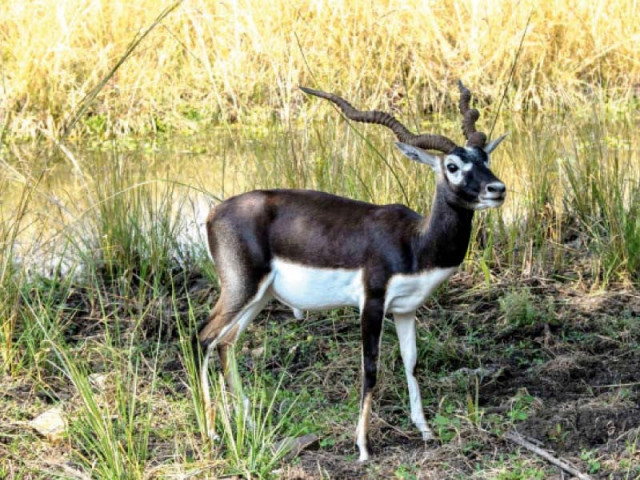Wildlife. PHOTO: APP
The Punjab government has taken two major steps to protect wildlife and safeguard human populations from potential dangers posed by wild animals. The measures include the implementation of the “Punjab Wildlife Hazard Control Rules 2025” and comprehensive amendments to existing wildlife protection laws, aiming to modernise environmental and biodiversity management in the province.
According to an official statement, the new rules are designed to enable scientific, systematic, and immediate action in cases of conflict or danger between humans and wild animals. If a wild animal poses a threat to humans or other living beings, or is incapable of surviving due to disease or injury, the Chief Wildlife Ranger may order action based on field reports, scientific evidence, and public complaints. In emergencies, the Punjab Rangers can, after consulting relevant experts, decide to capture, relocate, or remove the animal.
Read: Floods ravage fragile wildlife habitats
The rules specify that all actions must be taken in consultation with the Punjab Captive Wildlife Management Committee and veterinary experts to ensure they follow humane principles and scientific standards. A comprehensive strategy has also been developed to prevent future risks. Under this framework, certain species may be classified as harmful or pests, special hunting permits may be issued for limited periods in some areas, and sensitive locations may be designated as “Wildlife Hazard Zones” where feeding or keeping animals is prohibited.
The rules also allow for repatriation of foreign species to their native habitats and the reintroduction of local species into their natural environments. Individuals and organisations assisting in the relocation or capture of dangerous animals will receive government-approved rewards.
In addition, the Punjab government has significantly increased fines for wildlife offences. Penalties for hunting protected birds have risen from Rs2,000 to Rs5,000, while fines for serious violations have increased from Rs500 to Rs10,000. The hunting or possession of rare and predatory birds, including falcons, is now completely prohibited.
Read More: Punjab Wildlife Department arrests 18 in crackdown on illegal hunting, trade
Under the new amendments, honorary game warden positions have been abolished, while members of community-based conservancies will now have legal authority to assist in preventing illegal hunting and trade. A digital platform will be introduced for auctioning permits for hunting, breeding, and buying or selling wildlife. Live rabbits are now banned in dog racing competitions, with only mechanical bait permitted.
The law also provides for the establishment of special Wildlife Protection Centres across the province, staffed with personnel equipped with modern weapons and tools. These officers will have the authority to conduct searches and make arrests without warrants, ensuring effective enforcement of wildlife protection laws.




